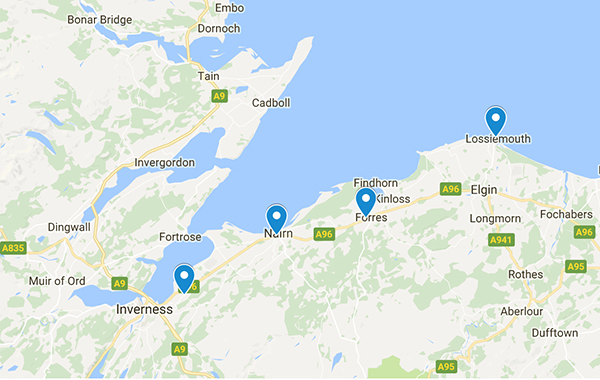Emergency Information
In the event of an emergency, please telephone 01309 672243
Moray Coast Vet Group provides a 24/7 emergency service for its registered clients. If you require emergency advice or treatment outside normal surgery hours, please telephone the above number. If you phone your normal branch telephone number when the branch is closed, your call will also be diverted to this number.
Your call will be answered by our Out of Hours Answering Service. Their staff will take from you relevant details of the nature of your call, and pass it on to the duty vet. Please be prepared to give the details that they require, especially a call back telephone number. Remember, even if you are well known to the vets at the practice, the out of hours staff will not know you, so please be prepared to give them the details they require. The duty vet will call you back as soon as is possible.
Depending on the nature of your problem, the duty vet may be able to give you simple first aid advice over the phone, or may advise that the animal is seen by a vet. Generally for farms and horses, the vet will make a visit to the animal on the farm. Please be prepared to give travel directions if the vet is unfamiliar with where you are. For companion animals, the vet will usually ask you to take your pet to one of the surgeries and meet you there. There may be circumstances when a vet will make a house visit, but generally, vets can provide a much more satisfactory service at the surgery – we only can carry a limited amount of equipment in our cars, so if possible please be prepared to take your pet to the surgery.
Once the vet has examined your animal, they will be able to advise you on the best course of action.
There are significant costs involved in providing a 24hour emergency service, and as a result, the charges for this service are more than our normal daily rates. The duty vet will be able to advise you on the costs when you make the initial phone call.
Common Small Animal Emergencies
POISONS/INGESTED ITEMS
Cats and Dogs often eat things that they shouldn’t. Below is a list of some commonplace items that could be toxic to your pets. This is in no way a complete list so if you are in any doubt about something your pet has eaten please contact us to check. Please give as much information as you can to us about the item your pet has ingested. In the case of medicines and rodent/slug baits, bring the packaging along to the surgery with you.
– chocolate
– rodenticides (rat and mouse bait)
– antifreeze
– compost/mould
– slug pellets
– lilies (all parts of the flower/plant – cats only)
– certain human medicines and creams
– grapes, raisins
– onions, garlic, leeks
Cats and dogs will sometimes eat items that could damage their gastrointestinal tract or cause an obstruction. Signs of an obstruction include vomiting, anorexia, abdominal discomfort
‘BLOCKED MALE CATS’
Cats and dogs can suffer from a number of problems that cause them to strain to go to the toilet including colitis, constipation and other forms of faecal obstruction and urinary disease eg. cystitis.
Male cats can suffer from a ‘blocked bladder’ – this is caused by a blockage to the urethra (the tube leading out of the bladder) with sediment or crystals. The cat is then unable to pass urine. This is a very distressing condition – the cat is often very uncomfortable, trying repeatedly to go to the toilet without success and may lick at their back end. This condition requires prompt treatment (usually involving an anaesthetic to clear the blockage) to prevent lasting damage and even death.
ABDOMINAL SWELLING
Sudden onset abdominal (belly) swelling can occur due to gorging food but can also be a sign of a more serious problem. Deep chested dogs eg. Boxers, German Shepherds and giant breeds eg. Great Danes can suffer from gastric dilatation and volvulus (GDV or twisted stomach). The stomach twists and becomes filled with gas causing a bloated abdomen. The dog may also try to vomit but be unable to bring anything up. This requires urgent veterinary attention and usually surgery. Sudden abdominal swelling can also be a sign of internal bleeding. The dog may also seem lethargic, uncomfortable and have pale gums. Again, seek veterinary advice.
Copyright 2018 Moray Coast Vets Group | Design by Cuan

